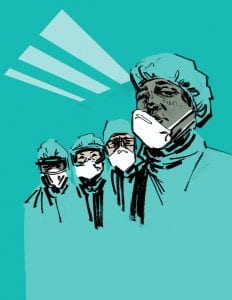By Professor Albert Sanchez-Graells (University of Bristol Law School).
The National Audit Office’s Report on its ‘Investigation into government procurement during the COVID-19 pandemic’ found that the relaxation of the standard procurement rules to allow for extremely urgent acquisitions, mainly of PPE, resulted in alarmingly widespread levels of procedural impropriety in the award of up to £18bn in public contracts. Most notably, the NAO report revealed the existence of a ‘VIP procurement channel’ for those with political connections, which resulted in much higher chances of obtaining very lucrative contracts than for those retained under the ‘normal’ pool of potential suppliers. This adds to (and partly explains) earlier reports of very large PPE contracts awarded to companies with no proven track record in the PPE market. (more…)










